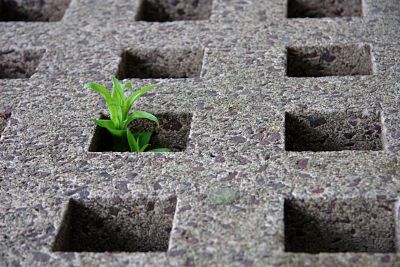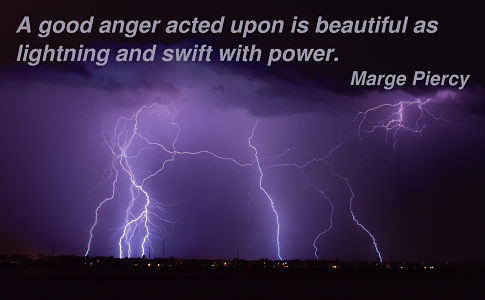Trans Resistance and Existence

[Article Content – this post includes stories and thoughts about violence, murder, suicide, anti-trans violence, and trans-misogyny.]
Today is Trans Day of Remembrance, a day to remember the lives of trans people who have been murdered or who have taken their own life. It is a somber day, but it is also a day that reminds me of strength and resistance embodied by so many trans people.
Last month Kara wrote a post about resistance, allyship, and accountability. I wanted to follow suit and share some of my thoughts about resilience and resistance but there is so much to say about the beauty and power of these topics that the words kept turning into a traffic jam at my fingertips, impatiently resting on my keyboard. I feared saying anything without saying everything.
Then I watched this video:
I watched this video and realized that words that had been rumbling around inside me, incomplete or awkward as they may turn out to be when written down, could no longer be contained. What I saw in this video was CeCe’s fierce resistance.
CeCe McDonald was incarcerated for surviving a violent attack. Other trans people, particularly trans women of colour, do not survive. To talk about trans people without talking about resistance is to erase histories and lives that existed and exist despite dominant narratives that say we should not.
Trans people live and survive in the midst of threats of violence, discrimination, exclusion, and the inability to access needed and wanted services safely or even at all. Violence against trans people is rooted in systems of oppression. Racism, colonialism, misogyny, classism, ableism, heteronormativity, etc. – these systems of oppression and so many more work together to enable violence of all forms to occur. On Trans Day of Remembrance while we reflect on lives lost it is crucial that conversations encompass the ways that power operates in intersecting and sometimes unnamed ways.
Trans Women and Trans-Feminine Resistance to Trans-misogyny and Racism
It is not a coincidence that trans women experience higher rates of violence. It follows that the majority of trans people remembered on this day (and every day) are trans women of colour. This is because masculinity, patriarchy, and whiteness still reign supreme in our society. Trans women have been and continue to be leaders and active resisters in trans activist movements. Many of these women are women of colour who name the role of racism and colonialism in their experiences of violence. Many of these women are or were involved in sex work and are therefore not only resisting attacks on their trans identities, but also resisting attacks and judgement because the work they do is still stigmatized and criminalized in most places.
I have learned about how to be fierce, passionate, resilient, and defiant from the resistance trans women of colour have embodied in their daily lives, and in gay and trans liberation movements. LGBTQ+ movements in colonized North America cannot tell an informed or complete history without recognizing the roles of trans women and Two-Spirit people. For example, it was trans women who led the Stonewall Riots – only to have their actions co-opted almost immediately after by white, middle class, gay men and women. These women, Sylvia Rivera among them, resisted this loudly and publicly, refusing to back down.
However, as inspired as I am by the strength of these women I will never know what it feels like to experience the discrimination and violence they have faced. Though I have experienced barriers, erasure, and violence because I defy and resist gender binaries, the reality is that my trans-masculine performance of gender, my whiteness, and my body means that I am generally not seen as a “threat” to ciscentric culture. My relationship to trans and gay liberation movements is different and it comes with certain privileges that can too easily be used to silence the voices of those who have fueled these movements. On Trans Day of Remembrance (and every day) I am reminded by my trans sisters and siblings that I and other (white) trans, genderqueer and trans-masculine people have privilege examining and relationship building work to do. This work will be done imperfectly, but my hope is that it will be done with accountability.
Existence is Resistance.
It cannot be said enough. Trans people exist in a world organized around gender binaries, a system that was brought to Turtle Island (North America) through colonialism and imposed through violence, religion, language, and laws. Gender-separated washrooms, change rooms, and prisons, only two options for identification, and assigning babies gender based on whether they have (what a doctor determines to be) a penis or a vulva are daily reminders of the active erasure of trans bodies, trans identities, and trans lives. For many trans people, their identity and existence transcends these binaries and becomes an act of resistance. Risking losing our families, friends, homes, chances of employment, and so much more we continue on because we are so strongly tied to who we are. Within trans resistances race and culture are further embodied by Two-Spirit and/or trans Indigenous people and by trans people of colour who connect with, bend, stretch, and reclaim cultural gender identities outside of Western and white paradigms. Their resistance is profound, and I feel deeply honoured when I am invited to be witness to their various expressions of identity, through stories and art.
Today I feel somber, but I do not feel passive or stagnated by sadness. I remember and think about my trans siblings every day of the year. Your voices speak loudly to me through your writings online and in your daily resistances and responses to violence and cissupremacy. The death of Leslie Feinberg, a long time transgender activist and author of Stone Butch Blues, who will be remembered for hir contribution to trans liberation movements and as a revolutionary communist for many decades to come, is a reminder to me that remembering and celebrating trans people goes well beyond commemorating those who were murdered or took their own lives.
To those trans people whose lives were lost this year and in previous years because of a society that normalizes and silences transphobic, trans-misogynist, and homophobic actions; I will not use the little I know of your lives, or the statistics too many of us become, to justify trans and/or anti-violence movements. Rather I will remember you as humans who resisted, who responded to violence in ways that were right for you, who loved, who had families (chosen and not), friends, who probably laughed sometimes and cried others. It should not be about how your life was taken, but how you marked the world while you were here through your love, tears, joy, and resistance. For those who took your own lives, I recognize that for you this may have been your final act of resistance, an act of agency and of self-determination.
Today I will also remember those who are still here. Living. Many of us surviving, fighting for our rights, and holding each other in moments of grief or when the weight of survival feels too great.
Here we are.
I remember that we are thriving. Continuing histories of resilience. Making it clear that we have agency and will navigate our lives in our own self-determined ways. Not conforming to systems that have long oppressed us, but demanding change.
Here we are.
Existing.
Resisting.
If you are looking for a tangible way to put your emotions and remembrance in to action there are many causes and individual campaigns of resistance from trans women of colour that need your support.






